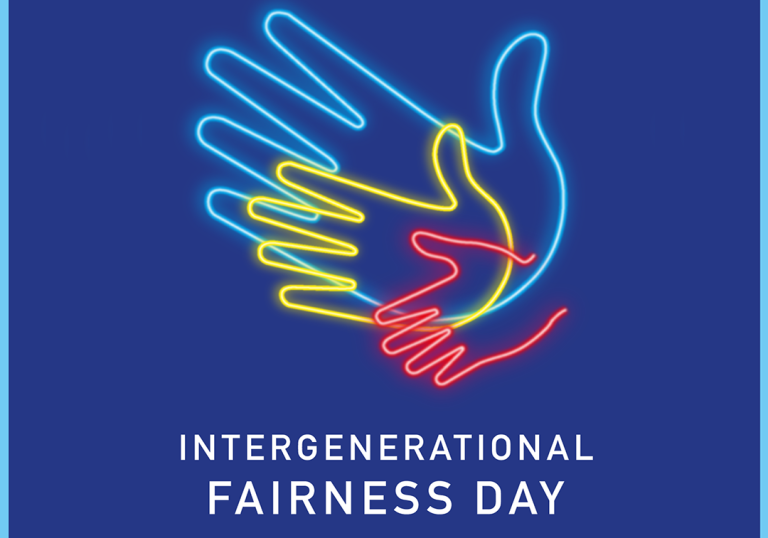Younger generations worldwide are facing new and unprecedented risks. And while it’s become commonplace for critics to point the finger back at them, blaming younger generations for their own problems – Young people are unmotivated! They’re entitled and narcissistic! – these narratives are a harmful distraction from the global generational crisis hiding in plain sight: Younger people coming of age across the world today are witnessing the collapse of the globalization era and bearing the brunt of the fallout as governments the world over fail to address its unintended consequences.
The threat to younger generations is so dire and so pervasive across the globe that an international alliance of like-minded organizations is coming together for a day of action on November 16 to bring awareness to this critical, yet often overlooked, issue.
To elaborate on the problem: globalization is considered part of a broader ‘neoliberal doctrine’, a set of ideas and policies used over the last half-century by policymakers and interest groups worldwide to protect unfettered free-markets and to oppose government involvement in the economy. Yet its core principles and policy tools have been unable to address the massive risks that have emerged in recent decades across the globalized system. Young people in particular are facing the consequences of a paradigm gone to seed: a fast-changing and insecure labor market, a growing cost of living crisis with inadequate safety net support, and the deterioration of the climate, among other existential threats.
Young people today face new risks in the labor market that are endemic to coming of age during an era of globalization. Outsourcing and offshoring of both low-skilled and white-collar jobs has resulted in structural changes to the labor market, leaving many young adults around the world with fewer dependable low- and middle-skilled jobs that were available to previous generations. For those that are able to get good jobs, the new global economy often requires a college degree. In fact, the degree requirement has become so central to succeeding in the transforming labor market that it has turned into a sorting mechanism of ‘winners’ and ‘losers’ that justifies a system of growing economic inequality. Young people worldwide are also not immune to the broader labor market trends of wage stagnation, race and gender discrimination, the decline of unionization and worker bargaining power, and the labor market changes on the horizon with the rise of Artificial Intelligence.
Notably, across the globe, outdated social safety nets have failed to evolve with these labor market transformations. The welfare states created in the mid-20th century were typically designed to protect the income of male breadwinners employed at stable, full-time jobs that offered a regular paycheck and benefits. Most safety nets have not accounted for youth labor market changes like the high rates of youth unemployment and new forms of precarious work.
Nor do safety nets account for changes to the social system experienced by many young families today. As more women have entered the labor market, many families have been left with the private cost of child care and the financial burden of caretaking for sick or elderly family members, and governments around the globe have struggled to update their safety nets to provide adequate family policy.
What’s more, both public and private sector employers in countries like the U.S. have played a significant role in shifting new risks to individuals over the last half-century. This has made it more difficult for young people to save for retirement or offset other areas of financial risk, such as the rising cost of healthcare, the housing crisis, or student debt loads. Meanwhile, entitlement programs such as pensions and old-age healthcare may go bankrupt worldwide before younger generations can benefit from them.
To top it off, there are also new risks that have emerged simply as a product of globalization’s successes. As noted by German sociologist Ulrich Beck, modernization has created technological hazards with global, rather than local, consequences. New global threats like climate change, viruses and pandemics, or the unknown risks from AI threaten the sustainability of all human life on the planet. Together, these new risks have left many young people feeling anxious, stressed, and hopeless about the future.
In response to the failures of globalization, political leaders across the developed world have turned to one of three options: trying to breathe new life into the dying neoliberal experiment, seeking out populist alternatives that attempt to deglobalize the economic system, or embracing authoritarian-style regimes such as Russia, China and Iran. The battle over these options is at the heart of extreme polarization in the U.S. and elsewhere, and arguably, central to the threat of global war erupting in Ukraine and Israel.
For decades, generational scholars William Strauss and Neil Howe have predicted that a global crisis will culminate on the world stage within the next few years, and that Millennials will become a ‘hero generation’ to bring about wide sweeping change. We’ve been made to believe that there are only three paths forward, but younger generations are signaling another way.
In a recent global survey of young adults, young people report wanting government to be at the center of a new agenda that redistributes resources and power more equitably, takes on a larger role in redefining safety net programs, regulates unfettered capitalism, undoes the social hierarchies of the past, and reduces long-term risks like climate change and insecurities arising from technological advances.
Younger generations could be at the forefront of developing a new policy paradigm to lead us out of the current existential crisis, if only policymakers would take notice. On November 16, the Berkeley Institute for Young Americans, along with organizations from Germany, the United Kingdom, Canada, the Netherlands, Japan, Nigeria, Australia, as well as members of the United Nations NextGen Fellows are urging lawmakers to not only heed the generational crisis, but consider the unique vision young people have for creating a more sustainable, equitable, and prosperous world.





